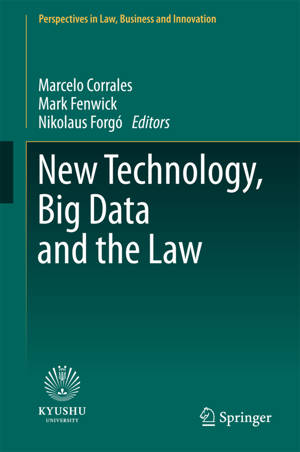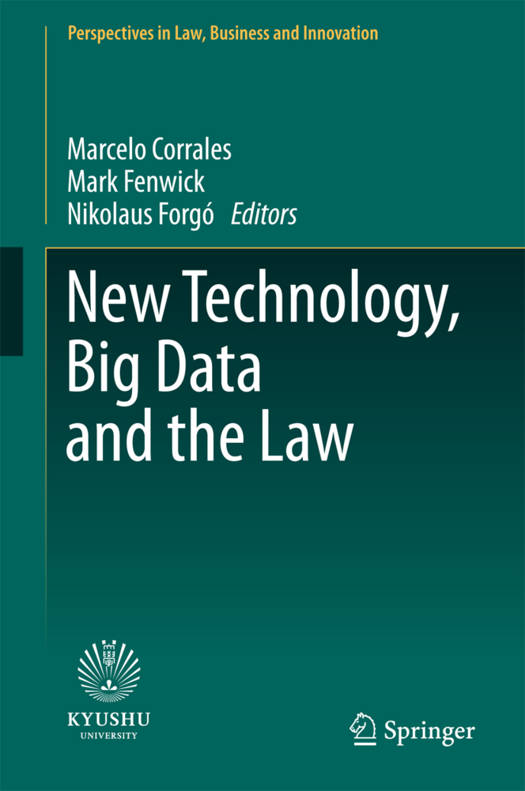
- Retrait gratuit dans votre magasin Club
- 7.000.000 titres dans notre catalogue
- Payer en toute sécurité
- Toujours un magasin près de chez vous
- Retrait gratuit dans votre magasin Club
- 7.000.0000 titres dans notre catalogue
- Payer en toute sécurité
- Toujours un magasin près de chez vous
New Technology, Big Data and the Law
209,95 €
+ 419 points
Description
This edited collection brings together a series of interdisciplinary contributions in the field of Information Technology Law. The topics addressed in this book cover a wide range of theoretical and practical legal issues that have been created by cutting-edge Internet technologies, primarily Big Data, the Internet of Things, and Cloud computing. Consideration is also given to more recent technological breakthroughs that are now used to assist, and -- at times -- substitute for, human work, such as automation, robots, sensors, and algorithms.
The chapters presented in this edition address these issues from the perspective of different legal backgrounds. The first part of the book discusses some of the shortcomings that have prompted legislators to carry out reforms with regard to privacy, data protection, and data security. Notably, some of the complexities and salient points with regard to the new European General Data Protection Regulation (EU GDPR)and the new amendments to the Japan's Personal Information Protection Act (PIPA) have been scrutinized.
The second part looks at the vital role of Internet intermediaries (or brokers) for the proper functioning of the globalized electronic market and innovation technologies in general. The third part examines an electronic approach to evidence with an evaluation of how these technologies affect civil and criminal investigations. The authors also explore issues that have emerged in e-commerce, such as Bitcoin and its blockchain network effects.
The book aims to explain, systemize and solve some of the lingering legal questions created by the disruptive technological change that characterizes the early twenty-first century.
The chapters presented in this edition address these issues from the perspective of different legal backgrounds. The first part of the book discusses some of the shortcomings that have prompted legislators to carry out reforms with regard to privacy, data protection, and data security. Notably, some of the complexities and salient points with regard to the new European General Data Protection Regulation (EU GDPR)and the new amendments to the Japan's Personal Information Protection Act (PIPA) have been scrutinized.
The second part looks at the vital role of Internet intermediaries (or brokers) for the proper functioning of the globalized electronic market and innovation technologies in general. The third part examines an electronic approach to evidence with an evaluation of how these technologies affect civil and criminal investigations. The authors also explore issues that have emerged in e-commerce, such as Bitcoin and its blockchain network effects.
The book aims to explain, systemize and solve some of the lingering legal questions created by the disruptive technological change that characterizes the early twenty-first century.
Spécifications
Parties prenantes
- Editeur:
Contenu
- Nombre de pages :
- 330
- Langue:
- Anglais
- Collection :
Caractéristiques
- EAN:
- 9789811050374
- Date de parution :
- 11-09-17
- Format:
- Livre relié
- Format numérique:
- Genaaid
- Dimensions :
- 156 mm x 234 mm
- Poids :
- 662 g

Les avis
Nous publions uniquement les avis qui respectent les conditions requises. Consultez nos conditions pour les avis.





